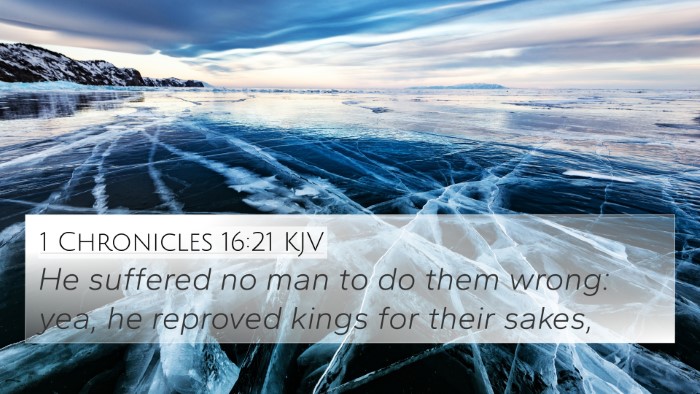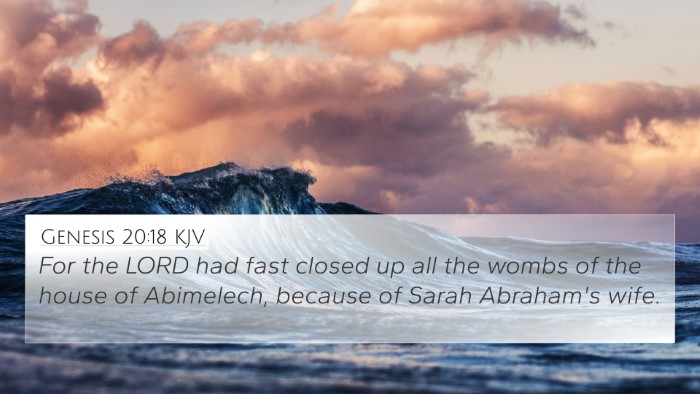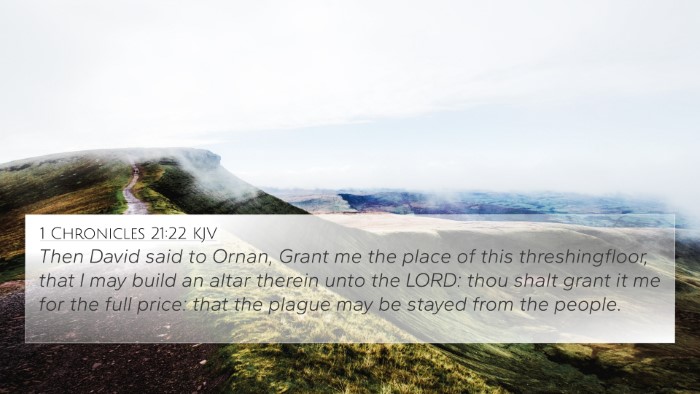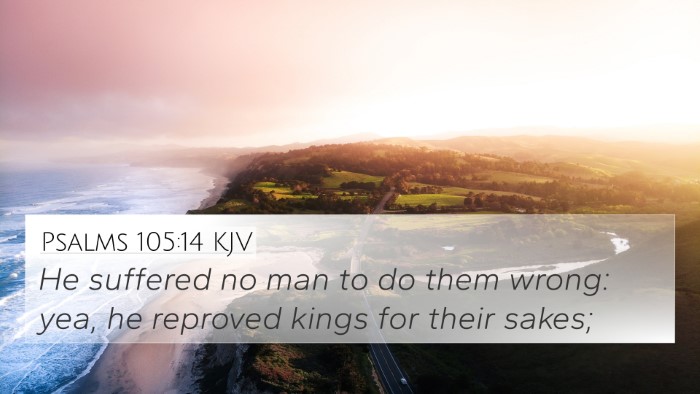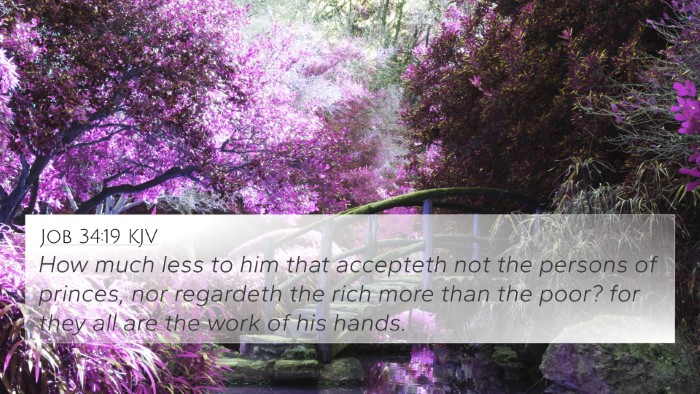Understanding Genesis 12:17
Bible Verse: Genesis 12:17 - "But the Lord struck Pharaoh and his house with great plagues because of Sarai, Abram's wife."
This verse presents a significant moment in the narrative of Abram (later known as Abraham) as he journeys into Egypt to escape famine. Upon entering Egypt, to safeguard his own life, Abram presents Sarai as his sister, which leads to disastrous consequences for Pharaoh and his household.
Verse Meaning
The plagues that afflicted Pharaoh illustrate the divine protection afforded to Abram and Sarai, despite Abram's lack of faith in God's promises. The commentary from various biblical scholars helps unpack the profundity of this incident.
Insights from Commentaries
- Matthew Henry: Henry emphasizes that God's intervention was a direct response to the wrongs done to Abram and Sarai. His commentary reveals that while Abram displayed fear, God showed faithfulness by safeguarding Sarai from harm. Henry highlights the moral of reliance on God’s sovereignty and providence, particularly in situations of uncertainty.
- Albert Barnes: Barnes notes the severity of the plagues and suggests they were a means of divine judgment, reminding us that God's power extends over rulers and nations. His observation points to the broader principle of God working through circumstances to uphold His covenant, reinforcing Abram's status as a chosen vessel. Barnes sees the event as a demonstration of God’s grace, as He intervenes for the sake of His people even in their flaws.
- Adam Clarke: Clarke draws attention to the symbolism of the narrative, stating that the plagues represent the consequences of sin and disobedience. He argues that these plagues served to awaken Pharaoh’s awareness of the Almighty’s presence and power. Furthermore, Clarke articulates that the episode serves as a cautionary tale, reflecting the thaw between human fear and divine assurance.
Cross-References and Connections
Genesis 12:17 relates to several other Bible verses and themes across both the Old and New Testaments that provide further context and insights into God's character, human behavior, and the unfolding narrative of redemption.
Related Bible Verses
- Genesis 20:3: God intervenes again in the life of Abram as Abimelech also takes Sarah, showcasing God's commitment to preserving the line of promise.
- Exodus 8:1-6: Relates to God's power in inflicting plagues, reminiscent of His actions in Genesis 12:17, further illustrating divine retribution against the unfaithful.
- Romans 8:31: "If God is for us, who can be against us?" This parallel emphasizes the protection God provides to His people.
- 1 Peter 3:6: A mention of Sarai’s faithfulness serves as an example for wives, relating back to her experience in Genesis 12.
- Galatians 3:14: This verse ties into the covenant promise and the blessings associated with it, elucidating Abram's importance in Biblical narrative.
- Genesis 12:1-3: The preceding verses provide the backdrop for understanding the risks Abram took and God's subsequent protection.
- Hebrews 11:8-10: This passage reflects on the faith of Abram, contrasting with his moment of fear in Egypt.
- Psalm 105:14-15: God’s warnings against harming His chosen, which directly connects with the narrative of the plagues in Egypt.
- Matthew 2:13: This New Testament account where God warns Joseph in a dream reflects the ongoing divine protection of those who are faithful to God’s plan.
- Philippians 1:6: Affirms that God completes what He begins in His people, tying back to His covenant with Abram.
Concluding Thoughts
Genesis 12:17 serves as a powerful reminder of God's faithfulness and the consequences of human actions. Despite Abram’s fear-driven decisions, God’s love and protective hand remain evident throughout Scripture. By understanding this verse and its wider implications, we can better appreciate the overarching narrative of the Bible and the theme of divine providence.
Exploring Further
For those looking to deepen their study, utilizing tools for Bible cross-referencing, such as a Bible concordance or cross-reference Bible study materials, can enhance your understanding of how Genesis 12:17 connects with other passages. Investigating thematic Bible verse connections or employing a comparative study of different biblical texts can aid in grasping the rich tapestry of relationships that the Scriptures offer.



